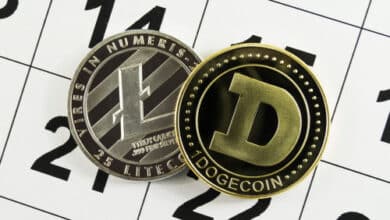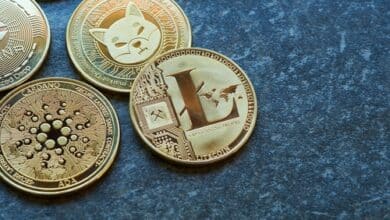Decentralized Social Media Networks: All You Need To Know

Introduction
The human generation has significantly evolved over time. Our lifestyle today is drastically different from the way our ancestors lived their lives. In a similar vein, the world wide web has transformed too, from Web 1.0 to Web 3.0, with the progression of time and, obviously, science.
Web 1.0, also referred to as the static web, was the first generation of the internet. Around 2004, it was replaced by its advanced version, called Web 2.0. This refers to the current version of the World Wide Web, which particularly emphasizes user-generated content that includes articles and blogs and promotes a high level of consumer interaction. All the data it holds is saved on a centralized server that is controlled by a famous corporation such as Facebook or Twitter, or even Google.
Consequently, businesses have an enormous amount of influence and power through social media, and they control its mechanics to the greatest degree possible. The fact that these companies exploit the vast amounts of data they collect here comes into the equation as such gigantic power booths use the internet as a commodity for brand promotion.
This is the primary source of criticism leveled against them. As a direct reaction to this, we are now in the heat of the moment of evolving towards Network3.0, which will be a far more sophisticated web that would be able to comprehend and link a higher quantity of data in a decentralized manner and often without the need of mediators or intermediates or power dominators.
Another point that should be noted is that the increasing adoption of social media platforms has, without a doubt, caused significant changes in the manner in which we interact; nevertheless, many people hold the view that these shifts are not always for the better. For instance, the absence of content control throughout social networking sites has enabled the propagation of disinformation on certain pivotal matters example, the COVID-19 pandemic.
Inaccurate information regarding COVID-19 was dispersed due to social networking sites, and since no one was there to control it, such inaccurate data significantly affected how people dealt with Covid and resulted in disastrous health consequences in some cases.
Even before the COVID-19 outbreak, many consumers were dissatisfied with the way major platforms dealt with the dissemination of information, as well as filtering data, confidentiality, degree of control, and harmful behavior on the web. This dissatisfaction led to further advancement of the internet and led to the birth of decentralized social networks, which are also called federated networks, which are becoming more popular as a result of the problems raised in the previous sentence.
In this piece, we will discuss what decentralized social networks entail and how they function, and then we will provide a rundown of some significant advantages and disadvantages they possess.
What is Decentralized Social Media?
Decentralized social media are also referred to as blockchain-based media platforms, as they operate on a public ledger-based networking mechanism. In light of this, the actions that take place on these channels are permanently preserved on a decentralized framework that no centralised authority can manage or monitor or even alter for their own vicious intentions. This is in contrast to centralised social networking sites Like Facebook and Twitter, among others.
Because social networking sites often put more emphasis on generating cash, traditional social media outlets not only regulate what users publish but also what content users have access to see. Because of this, they provide consumers with attention-grabbing commercial material, which results in the users being more amused than educated.
But on the contrary, users on decentralized social media networks can interact with one another in any manner they see fit and are not subject to scrutiny. This is because the developmental teams of such networks typically provide enough guiding regulations to the firm and leave the functionality and other operation of a decentralized community completely to its participants.
The illicit selling of customer information is one of the controversial concerns that arise with centralized social networking sites, as mentioned above; however, decentralized social media platforms eliminate this problem entirely. In addition, the employment of cryptographic techniques inside blockchain technology improves user privacy as well as the security of data. Uptrend and Steem are good instances of decentralized social media networks. Subsocial, which is constructed on Polkadot and Kusama’s Substrate platform, is another example of decentralized applications operating today.
Now let’s talk about Fediverse. The fediverse is a community of interlinked sites that can be used for online communication as well as other actions like blogging and the exchange of media. A federated connection that is autonomously hosted is capable of interacting with other communities that are part of the fediverse. This is one of the most significant distinctions that can be made between decentralized online communities and well-known social media platforms like Twitter.
For instance, Twitter users are only capable of sending and receiving messages to other individuals with Twitter profiles. This means that Twitter users are unable to relay texts to Facebook profiles since there is perhaps no cross-platform congruence between the two platforms. On the other side, federated networking makes it possible for users to interact across several mediums.
The use of e-mail is a good illustration of how decentralized social networking site functions. Consider the web search engines Google and Yahoo! Every organisation has its own protocol for handling users’ e-mail. Yahoo’s users are not subject to any rules imposed by Google. Despite this, consumers of Google may write messages to and receive messages from members of Yahoo, as well as the other way around. Federated networks operate in a similar manner. They allow open communication between platforms that lie on their community interface.
In spite of the considerable potential they possess, social networks that are powered by blockchain technology still have a long road ahead to go before they enter the popular and compete on equal ground with their centralized equivalents. They undoubtedly need some amount of time in order to mature and become universally adopted by users of the internet in this day and age.
What Are the Advantages of Using Decentralized Social Media Networks?
Connectivity, the formation of communities, and the exchange of information are all fostered by social networking sites. Individuals have the ability to utilize social media to create social reforms, raise public awareness about critical causes, generate finances for individuals that are in need, and advertise their own enterprises. Indeed, there are hundreds of uses of social media, and undoubtedly, it’s one of the greatest developments of science today.
However, like every other thing, it has some downsides too. The dark side of social media includes the potential for online bullying, sociopolitical disinformation, and even illegal conduct. Both good and bad results grow more severe as a result of the fact that decentralized social media networks are, for the most part, unpoliced.
However, let us begin by talking about decentralized social media advantages in detail.
Increased User Control and Protection of Free Speech
The biggest social media platforms these days are controlled by corporate firms, and a very limited number of individuals inside these corporations decide the general principles for user interaction. Concerns amongst users about censoring and freedom of opinion have been brought up as a result of this. The previous year saw Facebook implement high-profile restrictions on a wide range of people, including Louis Farrakhan and Alex Jones.
These bans were intended to safeguard users of social media networks from hazardous online behavior by prohibiting aggressive, bigoted, and threatening content; yet, some people argue that such restrictions violate the principles of free speech.
Users have significant autonomy over their accounts on a decentralized social network, which is the biggest advantage it provides. Federated networks, in contrast to centralized online platforms, encourage independence by operating without the need for a single organization. Censorship resilience, sovereignty over one’s personal information, and enhanced governance over user-generated material are only some of the pros generated by the act of decentralization.
In other respects, people will not tolerate censorship and will not give up the right to have the last say on whatever material they create. Because of this, nobody else, not even the website operator or a large organization, will be able to make changes to the material that users have written. No one can delete the material that other users have created either. Hence, whatever you do, always stay on the platform- good and bad, both so you can’t ever get away with it.
Within a federated structure, it is impossible for any organization to command the compliance of the other organizations too. On Mastodon, for instance, anybody may operate their independent social media platform with no need for a centralized system, which means individuals are free to publish whatever they choose without risk of having their content removed from the site.
The fact that hate organizations are able to build their respective social networking sites is made possible by this system too, which is one of the structure’s drawbacks. People have the power to block certain organizations, but this does not prohibit them from interacting with other users in the system.
Enhanced Confidentiality and Safety
Questions raised by users over the ability to exercise control over their own sensitive information led to the creation of legislation known as the General Data Protection Regulation (GDPR) in Europe. As per GDPR, users are considered “data controllers” under the new law. Corporations that deal with the social mainstream press are often referred to as “data processors.” Firms are expected to provide their consumers with more access to information and greater control of their personal data. Companies will face fines if they do not comply with the laws of GDPR.
Another solution to the problems of confidentiality of information has been presented by decentralized social networks. Users are able to establish accounts on decentralized online communities without being required to connect their profiles to any real-world identifiers, such as e-mail addresses or contact numbers. Hence, no one would actually find out who you are and other pivotal details about you, which obviously saves you to a great extent.
In addition, instead of depending on a single organization to safeguard user information, these organizations often use public-key authentication to ensure the safety of registered users.
This creates a number of obstacles, despite the fact that it may generate certain benefits from the point of view of information protection. For instance, user data and relationships may be lost if a bootstrapped decentralized social media network that was self-funded by its participants went down, leading to a result of financial resources.
Since federated networking does not store recordings of personal information on databases, there is no easy method for users in this situation to communicate with other people who are also using the connection. When it comes to users’ personal information, these networks do not always safeguard their data, which implies that management could be able to read their private conversations.
Neutrality
Financial neutrality is a crucial objective for so many people who have turned to decentralized social media platforms because they want to free themselves from intrusive advertising and the harm to their privacy that it entails. Federated communities are attempting to maintain their financial stability by using innovative monetization strategies. In addition to keeping their business functioning, they often make use of a kind of digital money such as Bitcoin.
Steem is a cryptocurrency that rewards its users for producing or curating material that other users find interesting. This provides an incentive for content providers to place a greater emphasis on the content’s authenticity. Entrepreneurs that have faith that Steem will increase in value throughout time and become so profitable that it would provide its network with the funding it needs to operate.
Challenges Associated with Decentralized Social Media Applications
There is no question that decentralized social media platforms provide numerous interesting advantages, including increased user confidentiality, privacy, greater freedom of speech, and economic neutrality. However, there are several dangers connected with the use of this type of information, the most significant of which is the possibility that dishonest people may take advantage of the ability it is decontrolled and decentralized, and there is no single authority that continually maintains an eye over it.
The formation of dangerous populations presents a risk of rapid propagation of harmful ideas such as inciting hatred, propaganda, and inappropriate activity, which might be illegal in some cases, causing massive social or political harm. While the construction of numerous decentralized networks would seem like a pretty great concept, there is always a possibility that these ideas could rapidly spread.
It is now much simpler for harmful organizations to disseminate their views to the wider populace because you may publish anything you like inside your own community, and there is no one who could ever erase it or modify it. That’s how easy it is for vicious people to transmit fallacious ideas among a group of their preference when the network is decentralized.
Even though many decentralized social networking sites have ethical standards for users to go by, some people may still attempt to take advantage of less well-established or younger communities that haven’t fully sorted everything else out. Furthermore, there is a chance that participants who share goals may attempt to influence or corrupt the government to their advantage, which would make the whole decentralized system itself untrustworthy and unreliable.
Future of Decentralized Social Media Platforms
The very last era has seen a significant acceleration in the rate of change inside online communities. What began as a collection of platforms where individuals simply interact and share with one another has developed into one of the most important channels for promoting companies, encompassing socioeconomic and cultural organizations, and is even expanding every day.
The proliferation of decentralized social networks has been hastened by the rise of incidents involving censorship and breaches of users’ confidentiality, and the world is increasingly advancing towards a more decentralized form of the web. In addition, the accessibility of blockchain technologies has escalated all across the globe, which means that already a lot of people are already familiar with the idea of decentralization and are also eager to work encompassing it.
Several of these established decentralized venues have already been concentrating their attention on this subject, such as Minds, Aether, Mastodon, Dtube, Pixelfed and the list goes on. To further support the idea of decentralization, Jack Dorsey, who was serving as CEO of Twitter in 2019, said that the company was beginning its journey towards becoming the first significant conventional decentralized networking site.
Based on these indicators, the business anticipates that decentralized social media networks will make a significant jump in the future years, which will be in accordance with the expansion of the ledger business.
Tokenhell produces content exposure for over 5,000 crypto companies and you can be one of them too! Contact at info@tokenhell.com if you have any questions. Cryptocurrencies are highly volatile, conduct your own research before making any investment decisions. Some of the posts on this website are guest posts or paid posts that are not written by Tokenhell authors (namely Crypto Cable , Sponsored Articles and Press Release content) and the views expressed in these types of posts do not reflect the views of this website. Tokenhell is not responsible for the content, accuracy, quality, advertising, products or any other content or banners (ad space) posted on the site. Read full terms and conditions / disclaimer.





